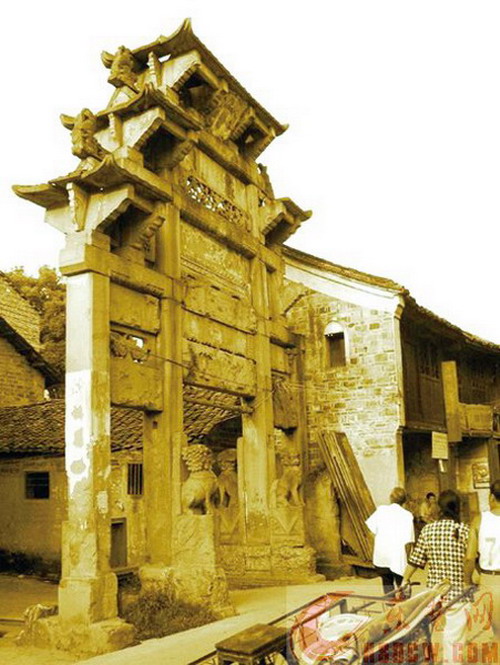| About Hubei | Culture & Arts | ||
| Attractions | Routes | ||
| Dining | Shopping | ||
| Hotels | Transportation | ||
| Entertainment | Travel agencies |
Jingshan to attract Wuhan tourists
Storytelling queen
For the love of Wuhan
Dangyang to promote tourism


Folk culture of Daye
Updated: 2011-12-23
Daye city, located in the southeast of Hubei province, boasts 3,000 years of cultural heritage. It hosts one of China's top 10 gold mines and copper mines in ranges of mountains and rivers of fantastic sceneries.
Before 1031, the South Tang regime set up a county jurisdiction in the place and named it Daye, meaning, "going in for smelting metals in furnaces." Zhu Hongwu, the emperor founding the Ming Dynasty, migrated many people from Jiangxi province to Daye in order to mine for the rich minerals. Since then, Daye has handed down countless stories about the mineral resources. Sun Quan, the king of Wu of the Three Kingdoms period, mined for minerals to cast swords. Yue Fei, a famous general of Song Dynasty resisting invasion of Jin regime, forged Yue Fei swords in Daye. All these stories are rich with ethnic and local characteristics.
I. Diet customs: "back to bowl etiquette"
Daye people are kind and hospitable and they receive guests with thoughtful services. In general, they will kill a chicken to entertain honored guests with chicken noodles. They will also put a few tender "poached eggs" under the noodle. The guests will have a good appetite in face of this bowl of sweet-smelling warm chicken soup noodle. The guests must remember to keep a little soup, one or two eggs, or a chicken leg in the bowl, a hint of "back to bowl." If the guest leaves an empty bowl on the table, it means the host is stingy, failing to allow the guest to eat until full. This will naturally embarrass the host.
 |
| Folk culture of Daye |
With some food left back to the bowl, the guest shows gratitude to the host, saying he is stuffed. The etiquette is normally confined only to breakfast and informal meals. In case of dinner reception, it is totally unnecessary for guests to worry about a hungry stomach. The host will surely split the eggs and pull apart the chicken leg with clean chopsticks, insisting on the guest to eat more. At this time, the guests no longer need to leave anything in the bowl. Rural Daye has the etiquette and custom of giving a return banquet, paying a return visit, and sending a return basket of gifts. In Daye, the people are courteous and genuine.
The "back to bowl etiquette" relates to diet taboo in the folk customs. China takes etiquettes and customs seriously. Some words and deeds deserve high attention. Taboos are norms banning certain behaviors and sayings. In practice, they consolidate and keep up the bounds of all cultural domains.
II. Sacrificing tradition: "Earth Lord Festival"
In Guocheng, the mountainous region of Daye, residents will celebrate a unique folk festival Earth Lord Festival each year.
the festival takes place on February 18 in the lunar calendar. During the day, local residents go up the mountain in crowds. They carry down two Earth Lords with red faces and red robes, enshrined in the mountain. This ritual is known as, "Earth Lord going down the sky." They lift up the Earth Lord and parade through the villages. When they reach a village, all families offer stamped cakes to pile up in front of the Earth Lord statue in the main hall. They pray for harvests and peace all year round.
"Framing Bodhisattva" is a key component to the Earth Lord Festival. Men and women, old and young, gather at the main hall to watch "Framing Bodhisattva" performances. "Framing Bodhisattva" is a primitive sacrificing dance and performance often last until late at night. The villagers put up the Earth Lord Bodhisattva with two long levers with thick ropes tied to them. In the middle of the ropes is a short stick. The four strong men lift it up and roll the levers with both hands simultaneously. Another man beats a big gong at the side. As the gong is beat faster, the levers are rolled more swiftly to excite the audiences. "Framing Bodhisattva" is actually a folk entertainment activity. It lasts until March 3, when people send Earth Lord back to the mountain. This is known as "Earth Lord going up to heaven," signifying the end of the Earth Lord Festival.
The sacrificial event embodies the collective nature of folk culture. This refers to clans, tribes, ethnic groups, towns, and other communities. It has been inherited and enjoyed by some social groups and become a public cultural property.
Note: A stamped cake is made of glutinous rice in molds. The molds are engraved with exquisite patterns, such as flowers, birds, insects, fish, fowls and beasts, producing attractive rice cakes. A stamped cake is a characteristic food of Daye and the piles of them glitter in their translucence.